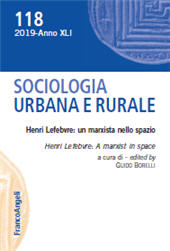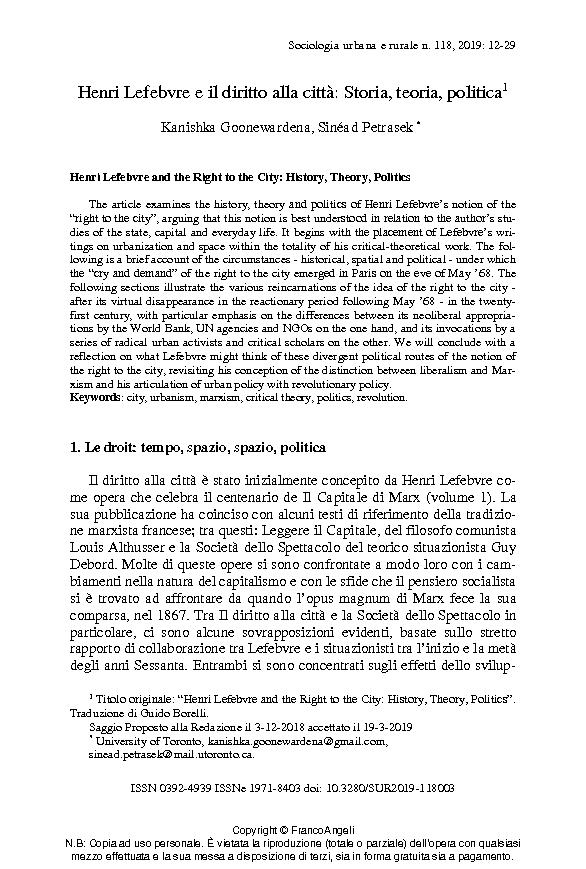Henri Lefebvre e il diritto alla città : storia, teoria, politica
12-29 p.
The article examines the history, theory and politics of Henri Lefebvre's notion of the "right to the city" arguing that this notion is best understood in relation to the author's studies of the state, capital and everyday life. It begins with the placement of Lefebvre's writings on urbanization and space within the totality of his critical-theoretical work. The following is a brief account of the circumstances - historical, spatial and political - under which the "cry and demand" of the right to the city emerged in Paris on the eve of May '68. The following sec-tions illustrate the various reincarnations of the idea of the right to the city - after its virtual di-sappearance in the reactionary period following May '68 - in the twenty-first century, with particular emphasis on the differences between its neoliberal appropriations by the World Bank, UN agencies and NGOs on the one hand, and its invocations by a series of radical ur-ban activists and critical scholars on the other.
We will conclude with a reflection on what Le-febvre might think of these divergent political routes of the notion of the right to the city, revi-siting his conception of the distinction between liberalism and Marxism and his articulation of urban policy with revolutionary policy. [Publisher's text].
Forma parte de
Sociologia urbana e rurale : XLI, 118, 2019-
Artículos del mismo número (disponibles individualmente)
-
Información
Código DOI: 10.3280/SUR2019-118003
ISSN: 1971-8403
KEYWORDS
- City, urbanism, marxism, critical theory, politics, revolution



